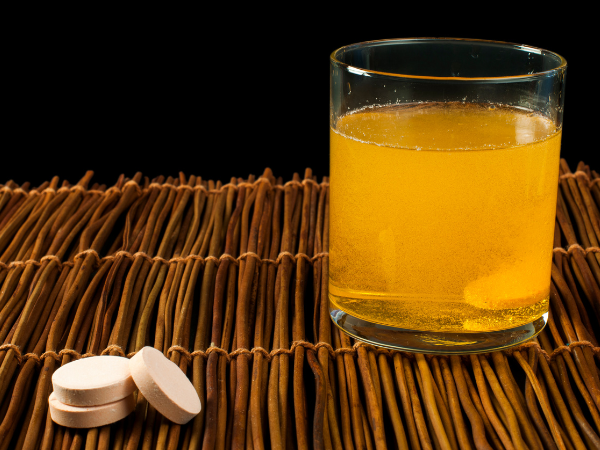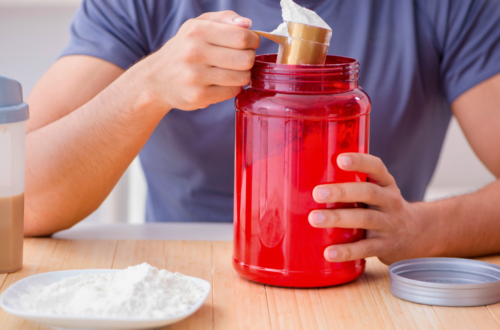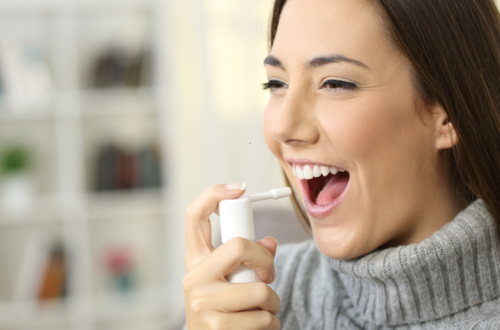
Is Vitamin Water Really Good for You? Exploring the Benefits and Harms
Vitamin Water can be both beneficial and harmful. It contains vitamins and minerals but also added sugars and calories.
Vitamin Water, a popular beverage, claims to offer hydration with added vitamins and minerals. Many people believe it to be a healthier alternative to regular water or sugary sodas. While it does provide essential nutrients, it also contains added sugars and calories that can counteract its health benefits.
Table of Contents
What Is Vitamin Water?
Exploring its benefits and harms can help you make an informed decision.
The Ingredients In Vitamin Water
Vitamin Water is primarily composed of water, sugar, and a variety of vitamins and minerals. The ingredients can vary slightly depending on the flavor, but some common components include:
- Water: The main ingredient, providing hydration.
- Sugar: Often in the form of crystalline fructose or cane sugar, adding sweetness.
- Vitamins: Such as Vitamin C, B Vitamins (B3, B5, B6, B12), and sometimes Vitamin A and E.
- Electrolytes: Minerals like potassium and magnesium, which help with hydration.
- Natural Flavors: To enhance the taste.
- Coloring Agents: Often derived from natural sources like fruit and vegetable juices.
Here’s a table summarizing the typical ingredients:
| Ingredient | Purpose |
|---|---|
| Water | Hydration |
| Sugar | Sweetness |
| Vitamin C | Immune support |
| B Vitamins | Energy production |
| Electrolytes | Hydration balance |
| Natural Flavors | Taste enhancement |
| Coloring Agents | Visual appeal |
How Vitamin Water Differs From Other Beverages
Vitamin Water distinguishes itself from other beverages in several ways. Unlike plain water, it includes added vitamins and minerals aimed at providing additional health benefits.
Compared to traditional sports drinks, Vitamin Water often contains fewer electrolytes but more vitamins. Sports drinks usually focus on replenishing electrolytes lost during intense physical activity. Vitamin Water, on the other hand, aims to offer a broader range of nutrients.
Soda and sugary drinks contain high amounts of sugar and empty calories with no nutritional value. Vitamin Water does have sugar, but it also offers vitamins and minerals, making it a slightly healthier option.
Here’s a comparison table:
| Beverage | Main Components | Benefits |
|---|---|---|
| Vitamin Water | Water, sugar, vitamins, minerals | Hydration, nutrient intake |
| Sports Drinks | Water, electrolytes, sugar | Rehydrate, replenish electrolytes |
| Soda | Water, high sugar, artificial flavors | Taste, energy boost |
| Plain Water | Water | Hydration |
Understanding these differences can help you choose the right beverage for your needs.
Benefits Of Vitamin Water For Hydration And Nutrition
This blog post explores the benefits and potential harms of Vitamin Water, with a focus on hydration and nutrition.
Does Vitamin Water Improve Hydration?
One of the main selling points of Vitamin Water is its ability to hydrate. Adequate hydration is crucial for maintaining bodily functions, and Vitamin Water can contribute to your daily fluid intake. The flavored water contains electrolytes such as sodium and potassium, which help maintain fluid balance in the body.
Here are some key points to consider:
- Electrolyte Content: The electrolytes in Vitamin Water help replenish those lost through sweat.
- Flavor Variety: The various flavors can make drinking water more appealing to some people.
- Convenience: Ready-to-drink bottles are convenient for on-the-go hydration.
While Vitamin Water can aid in hydration, it’s important to remember that plain water is still the best and most natural way to stay hydrated. Vitamin Water should not replace your regular water intake but can be an occasional supplement.

How Many Calories Are In A Bottle Of Vitamin Water?
Caloric content is an important factor to consider, especially if you are watching your calorie intake. Each bottle of Vitamin Water contains different calorie amounts depending on the flavor and type.
Here is a table showcasing the average calorie content of some popular flavors:
| Flavor | Calories (per 20 oz bottle) |
|---|---|
| Essential (Orange-Orange) | 120 |
| Focus (Kiwi-Strawberry) | 120 |
| Revive (Fruit Punch) | 120 |
| Zero Sugar (Various Flavors) | 0 |
Most regular Vitamin Water flavors contain around 120 calories per bottle. For those looking to cut calories, the Zero Sugar versions offer a calorie-free option. It’s essential to read the labels to make an informed choice.
Vitamins And Nutrients In Vitamin Water: Do They Make A Difference?
Vitamin Water boasts the addition of various vitamins and nutrients. These typically include vitamins B and C, which are crucial for energy and immune function.
Here are some common vitamins and their benefits:
- Vitamin B3 (Niacin): Helps convert food into energy.
- Vitamin B6: Supports brain health and energy production.
- Vitamin B12: Essential for red blood cell formation.
- Vitamin C: Boosts immune function and skin health.
While these vitamins are beneficial, it’s important to note that most people get enough of these nutrients through a balanced diet. Vitamin Water can provide a convenient source of these vitamins, but it should not be relied upon as the primary source of nutrition.
In summary, Vitamin Water offers hydration and some nutritional benefits, but it’s essential to consider its calorie content and not use it as a substitute for a balanced diet.
Harms And Potential Downsides Of Vitamin Water
It’s important to explore both the benefits and potential harms. Here, we focus on the harms and potential downsides of Vitamin Water.
Hidden Sugars And Sweeteners In Vitamin Water
Many people believe that Vitamin Water is a healthier alternative to soda or juice. But this perception isn’t always accurate. Vitamin Water contains hidden sugars and sweeteners that can harm your health.
Even though it’s marketed as a health drink, a typical bottle can contain up to 32 grams of sugar. That’s almost the same as a can of soda!
Here are some common sweeteners found in Vitamin Water:
- Cane sugar
- Fructose
- Crystalline fructose
Consuming these sugars can lead to various health issues:
- Weight gain
- Increased risk of diabetes
- Tooth decay
Check the nutrition label to see the sugar content before buying. Remember, not all sugars are obvious. Some are hidden under different names.
Is Vitamin Water Better Than Sugary Drinks?
Vitamin Water might seem better than sugary drinks. But this isn’t always the case. Both contain high sugar levels, which are unhealthy.
Here’s a comparison table for better understanding:
| Drink | Sugar Content (per bottle/can) |
|---|---|
| Vitamin Water | 32 grams |
| Soda | 39 grams |
| Juice | 24 grams |
As the table shows, Vitamin Water isn’t much better than soda. It’s only slightly lower in sugar.
Instead of relying on these drinks, consider healthier alternatives:
- Plain water
- Herbal teas
- Infused water with fruits and herbs
These options hydrate you without adding excess sugars. They also offer natural flavors and benefits.
In summary, both Vitamin Water and sugary drinks have high sugar levels. Choosing healthier options helps you avoid unnecessary sugar intake.

Is Vitamin Water Good For You?
In this section, we delve into the nutritional aspects of vitamin water, examining its benefits and potential drawbacks.
When You’re Sick: Can Vitamin Water Help?
Vitamin Water contains added vitamins and minerals. These nutrients may help when you’re feeling under the weather. The extra vitamins can support your immune system.
Consider the following potential benefits and risks:
- Hydration: Staying hydrated is crucial when you’re sick. Vitamin Water can help you stay hydrated.
- Vitamin C: Some Vitamin Water flavors have added Vitamin C, which supports immune function.
- Electrolytes: Certain types contain electrolytes, helping balance fluids in your body.
But remember, Vitamin Water also has sugar and calories. Too much sugar can be harmful, especially if you have a sore throat or are trying to avoid excess calories.
A comparison table:
| Benefits | Risks |
|---|---|
| Hydration | High Sugar Content |
| Added Vitamins | Extra Calories |
| Electrolytes | Artificial Ingredients |
Is Vitamin Water Safe While Pregnant?
Pregnancy demands higher vitamin intake. Vitamin Water can supplement your diet. But always check the label for ingredients and sugar content.
Pregnant women should be cautious:
- Added Vitamins: Too much of certain vitamins can be harmful. Consult your doctor.
- Sugar Levels: High sugar intake can lead to gestational diabetes.
- Artificial Additives: Some flavors contain artificial sweeteners and colors. These may not be safe for you and your baby.
Benefits and risks during pregnancy:
| Benefits | Risks |
|---|---|
| Supplemental Nutrients | High Sugar Intake |
| Hydration | Artificial Ingredients |
Weight Loss And Vitamin Water
People often look for low-calorie options when losing weight. Vitamin Water may seem like a good choice. But be mindful of the sugar content.
Consider these points:
- Calories: Regular Vitamin Water has calories. These can add up if you drink several bottles a day.
- Zero-Calorie Options: Some Vitamin Water varieties have zero calories. They use artificial sweeteners instead of sugar.
- Appetite: Sweet drinks can increase your appetite, making you eat more.
A weight loss comparison:
| Type | Calories | Sugar |
|---|---|---|
| Regular Vitamin Water | 50-120 per bottle | 13-32 grams |
| Zero-Calorie Vitamin Water | 0 | 0 grams |
Skin Health Benefits Of Vitamin Water
Hydration plays a key role in skin health. Drinking fluids keeps your skin moist and healthy. Vitamin Water may offer some additional benefits due to its added vitamins.
Here are some key points:
- Vitamin C: Promotes collagen production, which can improve skin elasticity.
- Vitamin E: An antioxidant that protects skin cells from damage.
- Hydration: Proper hydration can reduce dryness and flakiness.
Potential benefits and risks for skin health:
| Benefits | Risks |
|---|---|
| Improved Skin Elasticity | Possible Sugar-Induced Acne |
| Antioxidant Protection | Artificial Ingredients |
Considerations For Children And Vitamin Water
Parents often wonder if Vitamin Water is good for their kids. Children’s nutrition needs are different from adults. It’s important to know the potential benefits and risks.
Consider the following:
- Hydration: Vitamin Water can help keep kids hydrated, especially during sports.
- Added Vitamins: These can supplement a child’s diet if they are picky eaters.
- Sugar Content: Many Vitamin Water drinks have high sugar levels. This can contribute to obesity and dental issues.
Children’s considerations table:
| Benefits | Risks |
|---|---|
| Hydration | High Sugar Content |
| Supplemental Vitamins | Artificial Ingredients |
| Electrolytes | Extra Calories |
How To Make Your Own Vitamin Water
One way to ensure you’re getting the best possible version is to make your own vitamin water at home. It’s easy, fun, and allows you to control what goes into your drink.
Diy Vitamin Water Recipes For Better Hydration
Making your own vitamin water can be a delightful and healthy way to stay hydrated. Here are a few simple recipes to get you started:
- Lemon Mint Vitamin Water
- 1 sliced lemon
- 10 fresh mint leaves
- 1 liter of water
- Berry Blast Vitamin Water
- 1/2 cup of mixed berries (strawberries, blueberries, raspberries)
- 1 sliced cucumber
- 1 liter of water
- Citrus Ginger Vitamin Water
- 1 sliced orange
- 1 sliced lemon
- 1 inch of fresh ginger root, sliced
- 1 liter of water
Each recipe provides a refreshing taste and essential vitamins from natural ingredients. Lemon mint can help with digestion, berry blast offers antioxidants, and citrus ginger boosts immunity. Simply combine the ingredients in a pitcher, let it infuse overnight in the fridge, and enjoy your homemade vitamin water the next day.
Controlling The Sugar And Additives In Homemade Vitamin Water
One advantage of making your own vitamin water is controlling sugar and additives. Store-bought options often contain high sugar levels and artificial ingredients. Here are some tips for healthier homemade vitamin water:
- Use Fresh Fruits and Herbs: They add natural sweetness and flavor without added sugars.
- Avoid Artificial Sweeteners: They may cause health issues. Stick to natural sweeteners like honey or stevia if needed.
- Check Ingredient Labels: When buying ingredients, make sure they are free from artificial additives.
- Measure Ingredients: Control the amount of fruit and herbs to avoid excessive sugar intake.
Below is a table comparing the sugar content in homemade vs. store-bought vitamin water:
| Type | Sugar Content (per liter) |
|---|---|
| Homemade Vitamin Water | 0-5 grams (depending on added fruits) |
| Store-Bought Vitamin Water | 20-30 grams |
Homemade vitamin water gives you control over what you drink. You can create a delicious and nutritious beverage without unwanted sugars and chemicals. Enjoy the benefits of hydration and vitamins the natural way.




